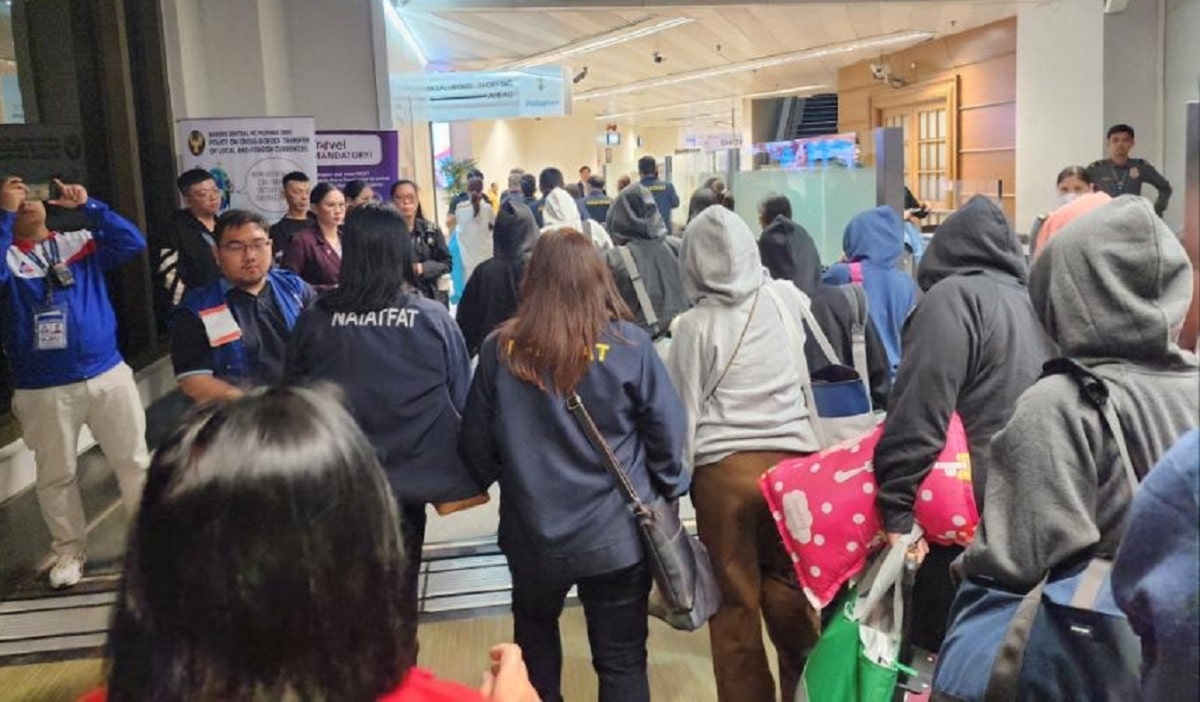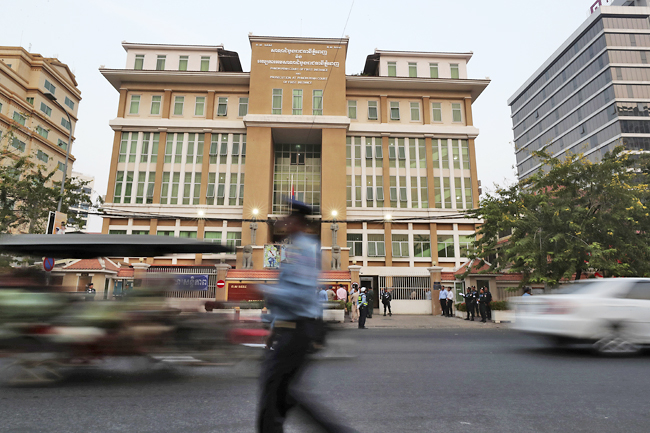ASEANEWS HEADLINE-HUMAN TRAFFICKING | PHNOM PENH: King pardons 13 Filipino women jailed over surrogacy
.
WATCH VIDEO: https://www.youtube.com/watch?v=wNJp2L27C9k
13 Pinoy surrogates na nakatanggap ng royal pardon sa Cambodia, nasa bansa na
.
.

Following a request and guarantee given by the Philippines government, King Norodom Sihamoni granted a royal pardon for 13 Filipino surrogate mothers, who were convicted and sentenced to four years in prison over violating the Kingdom’s anti-human trafficking laws.
However, the pardon should not be interpreted as leniency toward human trafficking offences in Cambodia, clarified the vice-chairwoman of the Kingdom’s anti-human trafficking unit in an interview with Khmer Times yesterday.
The Kandal Provincial Court on December 2 sentenced the 13 pregnant Filipino women to four years in jail for acting as surrogate mothers, with two years of the sentence to be suspended. They were arrested in southern Kandal province in September and charged with attempted cross-border human trafficking.
The court’s statement said the court had concrete evidence to prove that the 13 Filipino surrogate mothers had the intention to carry babies for foreign clients, and when the babies were born, they would sell them to a third person in exchange for money.
Not long after the sentence was handed down, the Philippines’s Department of Foreign Affairs (DFA) announced that it was doing everything in its power for the possible return of the 13 Filipino women to their home country.
.

The DFA said in a statement yesterday that all the convicted surrogate mothers had arrived safely in Manila, following their release under a royal pardon granted by King Norodom Sihamoni on December 26.
“Upon the request of the Philippine Embassy and with the endorsement of the Royal Government of Cambodia, the royal decree pardoning all 13 Filipinos paved the way for their release and immediate repatriation,” the statement said.
In the same statement, the Philippine government expressed gratitude to the Cambodian Government, led by Prime Minister Hun Manet, for the humane treatment extended to the Filipino mothers throughout the investigative and judicial processes.
.

BACK HOME The 13 Filipino surrogate mothers convicted of human trafficking in Cambodia arrive in Manila on Sunday morning, three days after a royal pardon. —Photo courtesy of the DOJ
“Their safe homecoming is a testament to the longstanding friendly relations between the Philippines and Cambodia and the firm commitment of both governments to combat human trafficking and other transnational crimes,” the DFA said.
The department also reiterated its warning to the Filipino public that surrogacy is prohibited in Cambodia.
“The Department of Foreign Affairs takes this opportunity to remind the Filipino public that surrogacy is banned in Cambodia and any violation thereof is punishable under Cambodian laws,” it added.
Chou Bun Eng, Vice-Chairwoman of the National Committee for Counter Trafficking (NCCT), confirmed the accuracy of the news, adding that the royal pardon was requested to the King by her unit after the Philippine government gave its guarantee that the women will take care of (and not sell) their surrogated babies and will not repeat the offence.
“The Embassy of the Philippines has made the request to us and given us the guarantee that their surrogated babies will not be sold,” she said. “We submitted the proposal for the royal pardon under the condition that the Philippine authorities will keep monitoring the mothers and the babies.”
A police officer in front of the Phnom Penh Municipal Court in Phnom Penh, Cambodia. PHOTO: AP
.
Bun Eng said the royal pardon is a sign of mutual understanding between Cambodia and the Philippines and the Philippine Embassy has also praised Cambodia for the assistance.
“We bear no ill intent toward the Philippines and her people; we were only enforcing our laws,” she added.
Meanwhile, Bun Eng clarified that the royal pardon is a one-time act and cannot be misinterpreted as “leniency or impunity” for the crime of human trafficking.
“Honestly, we also have some concerns about such a misinterpretation, but this would not have been done without a firm guarantee given by the government of the Philippines,” she said. “The women also promised to raise the surrogated babies as their own with love and will not give them to anyone else.”
“I would like to clarify my message: the pardon in this case does not mean you can always get away with it when you commit human trafficking crime in our country.”
Bun Eng also warned other women against involvement in surrogacy, which is not only illegal in Cambodia but also poses health risks to the surrogate mothers.
“In most cases found in our country, the surrogate mothers faced difficult births and even risks to their lives and health; it is not easy money or something like that,” she explained. “Although it is our responsibility to ensure that both the mothers and babies are safe, very few know how challenging the task is.”
According to the Philippine Ambassador to Cambodia, Flerida Ann Camille Mayo, the women were recruited by an agency offering surrogacy services. It was reported that the agency that recruited the Filipino women reportedly promised them $10,000 for their services.
Commercial surrogacy is a widely sought-after service globally, but as countries tighten regulations to prevent exploitation, it is becoming increasingly difficult for prospective parents to pursue.
In Western countries, surrogacy services can range from $100,000 to $140,000, but can be as high as $250,000 or more. As a result, some Europeans are seeking more affordable options in developing countries, where the cost of surrogacy is lower.
While Cambodia had been once a popular destination for surrogacy due to lower costs and less stringent regulations, the government banned commercial surrogacy in 2016. This followed concerns about the exploitation of women, legal ambiguities, and the ethical implications surrounding the practice.
However, there are no formal laws regarding it. A law to formalise the ban is being drafted, according to Bun Eng, and that Ministry of Justice is reviewing the draft to fine-tune it.


 Ads by:
Ads by: Memento Maxima Digital Marketing
Memento Maxima Digital Marketing













